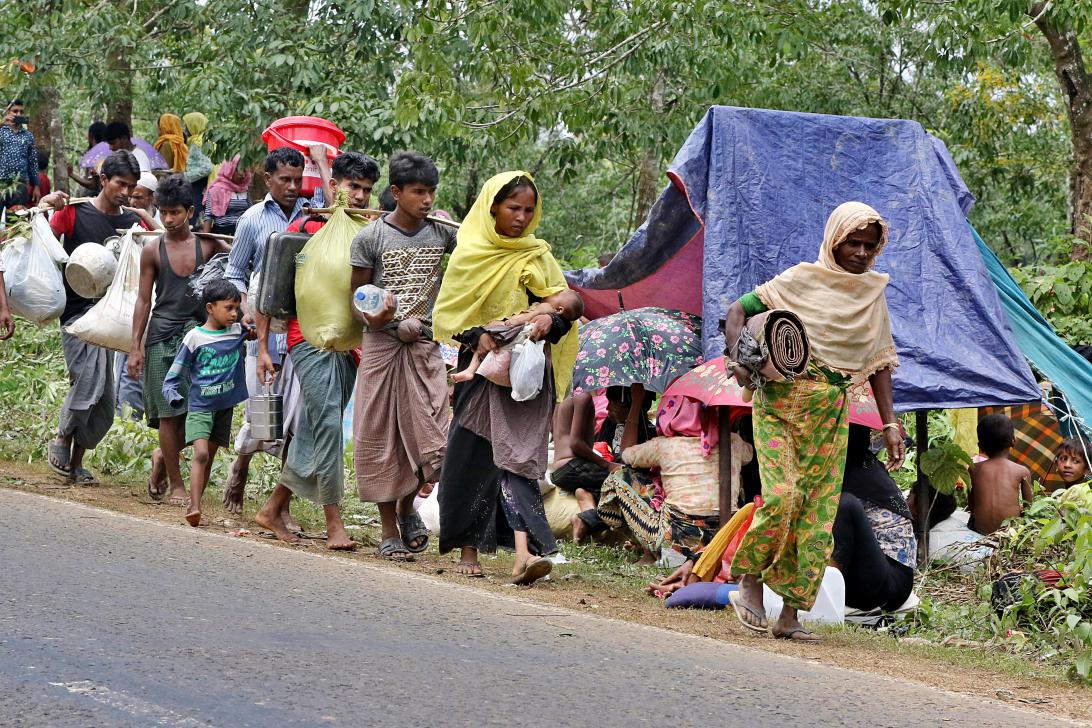Rohingya crisis: A concern for the region
esteem·@msumonc·
0.000 HBDRohingya crisis: A concern for the region
 Reacting to the insurgent attacks on some police outposts and an army camp on August 25, the Myanmar security forces have unleashed a "war" of sorts against the Rohingya—an ethnic minority group living for centuries in the Rakhine state of Myanmar—burning down their villages, killing their men and raping their women, committing what can be termed as "crimes against humanity" that has resulted in nearly 500 dead and nearly 200,000 taking shelter in Bangladesh, which has hosted Rohingya refugees for more than three decades in varying numbers depending on the level of oppression across the border. Myanmar, then called Burma, became independent in 1948 from the British, a year after the latter's withdrawal from the Indian subcontinent in 1947. Geographically Rakhine state, where the current conflict is taking place, is separated from the rest of Myanmar by barren mountain range. Ancient history gives the area its own separate past with a distinct Rakhine Kingdom being established in 1430 with its capital in Mrauk U located as a link between Buddhist and Muslim Asia with close ties with the Sultanate of Bengal. After 350 years of independent existence Rakhine State was conquered by the Burmese in 1784. This annexation was short lived as the territory was occupied by the British in 1824 and made a part of the British Indian Empire. Today the Rohingyas are about 1.1 million Muslim citizens of the Rakhine state but are not recognised legally as one of the 135 ethnic groups constituting a part of the citizenry of Myanmar. ![ann_3.jpg] (https://steemitimages.com/DQmSMQuiRYnx7zVFL9HMCQJJc8ty9JzoL5LnoS1ZnJH6Vdr/ann_3.jpg) It is perhaps not just a coincidence that the current attack on the Rohingyas follows on the heels of the report of the Rakhine Advisory Commission led by the former UN Secretary General Kofi Annan. This Commission was set up with active participation of the Myanmar government, albeit under severe pressure from the international community, and whose findings it had earlier pledged to implement. Now with the latest spate of violence the prospect of implementation of the Rakhine Commission appears remote and the possibility of a peaceful resolution of the Rohingya crisis may elude us once more. The Commission has correctly identified the central questions to be “citizenship verification, documentation, rights and equality before the law” and goes on to say that “… if they are left to fester, the future of the Rakhine state-and indeed of Myanmar as a whole-will be irretrievably jeopardised.” As we see it from Bangladesh, it is not only the future of Myanmar which will be jeopardised but that of this region itself as the Secretary General of the UN warned last Wednesday (September 6) China, given its historical links, will take more than a passing interest in this affair, an effort in which it will be supported by Russia the indications of which is discernible in their pattern of voting at the UN Security Council on recent resolutions on the Rohingya issue
👍 msumonc, cheetah, luckylay, wailay, snowlay, poetrylover, toeaung, vikk, abelbooker, masudranas, ahsan8186,